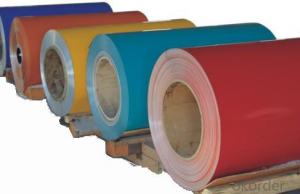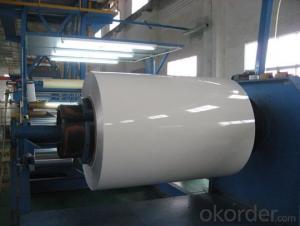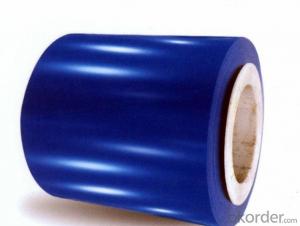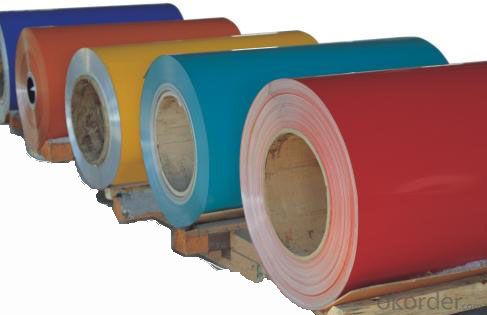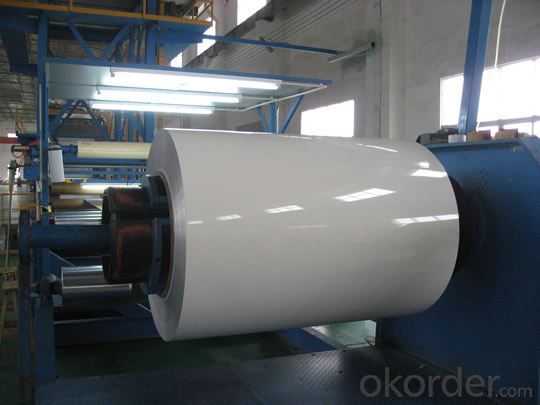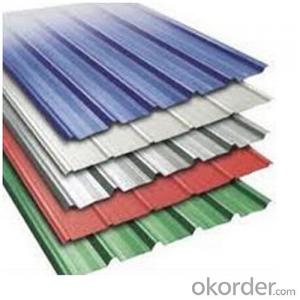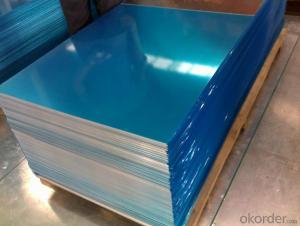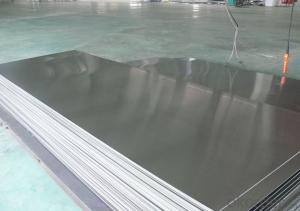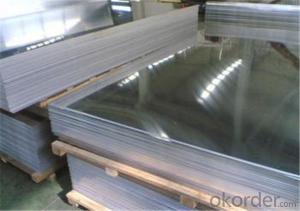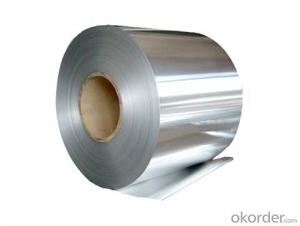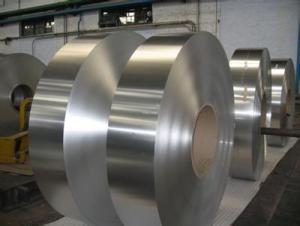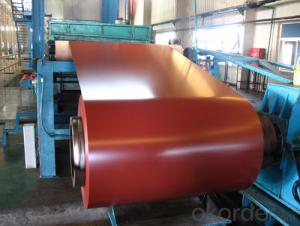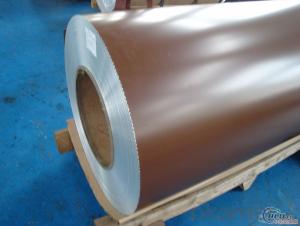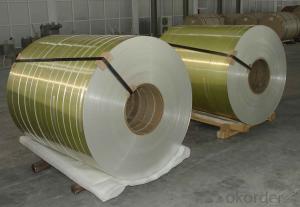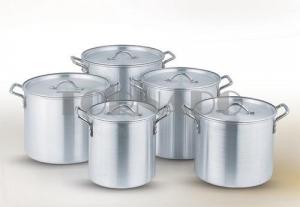Corrugated Aluminum Sheets Price for Polyester Coated Aluminum Coils for Wall Curtain
- Loading Port:
- Shanghai
- Payment Terms:
- TT OR LC
- Min Order Qty:
- 2 m.t.
- Supply Capability:
- 3000 m.t./month
OKorder Service Pledge
OKorder Financial Service
You Might Also Like
Specification
1.Structure of Polyester Coating Aluminium Coils for Wall Curtain
Polyester Coating Aluminium Coils for Wall Curtain are widly used in decoration field. For the painting, it depends on the using evironment. If you use in the open air, we recommend the PVDF coated aluminium coils. This kind of painting can last 15-20 years. If you use in the room, we recommend PE coated aluminium coils. The price is much more competitive.
2. Main features of Polyester Coating Aluminium Coils for Wall Curtain
a.Competitive price---We have our own mills and can produce mill finished aluminium coils, so we can control the production cost better.
b.Professional after-sale service---We have more than 15 years exportation experience and you need not worry about the exporation problems.
c.Fast delivery time---We can control the delivery time within 35 days.
3. Image
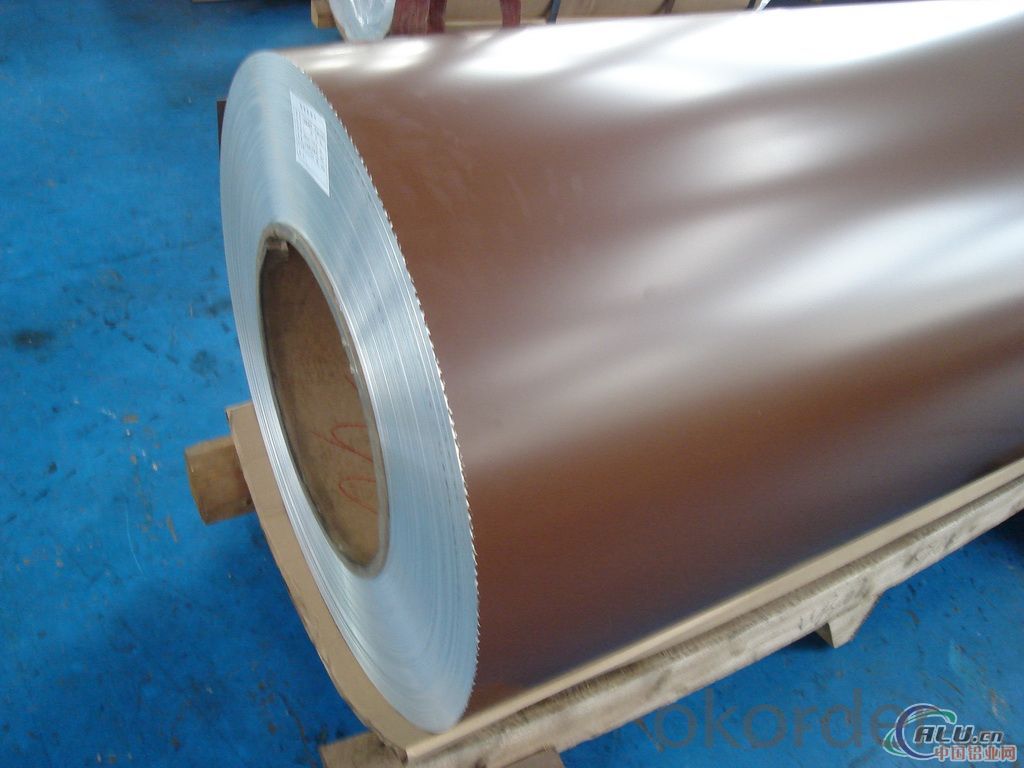
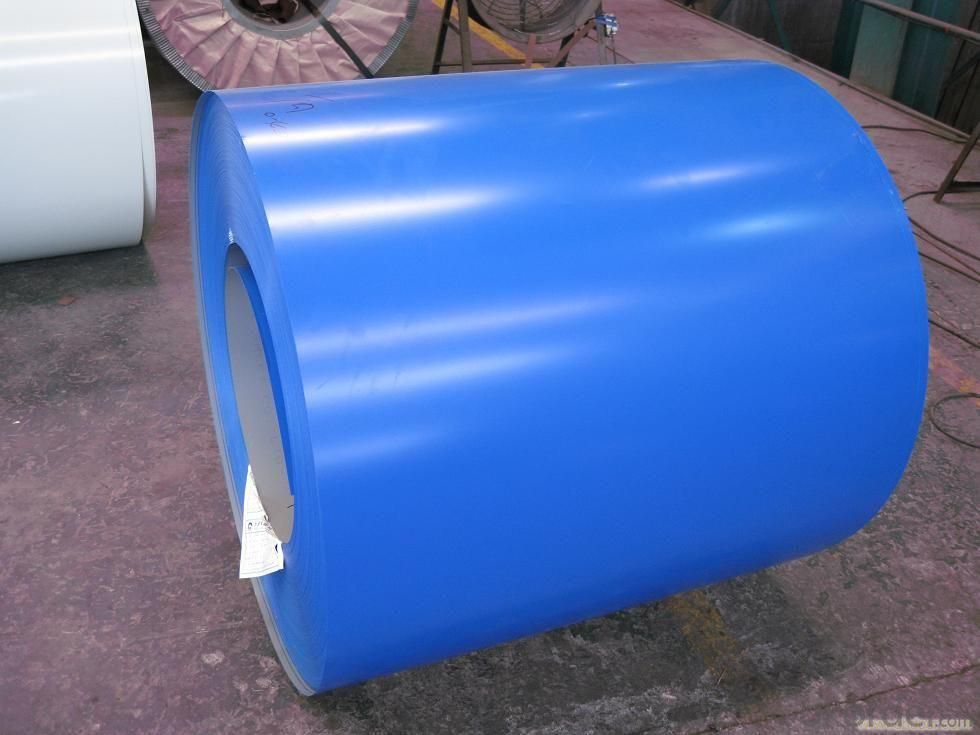
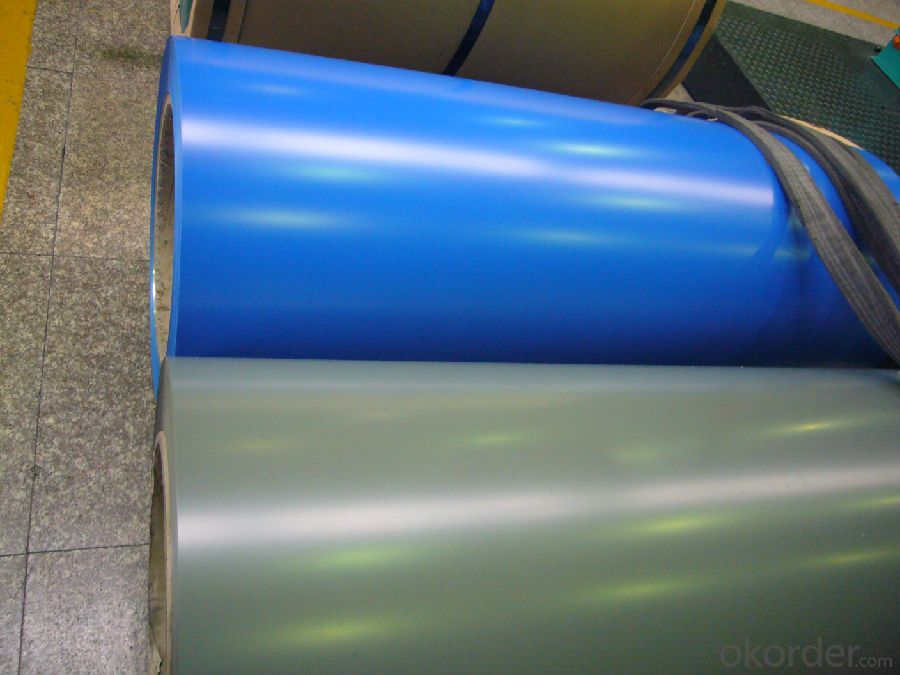
4. Product Specification
| Alloy | Temper | Coating | Coating Thickness | Weight |
| AA1050 | H14 | Polyester | 20-25microns | about 2 TONS |
5.FAQ:
What is the quality standard?
---Usually our standard is GB3880-2006
What is the largest width?
---It is 2300mm
What is the MOQ?
---Usually we can accept 80 tons.
- Q: This question asks for a comparison between aluminum sheets and other types of sheet metal regarding their strength and durability.
- <p>Aluminum sheets are known for their high strength-to-weight ratio, making them lighter than many other sheet metals such as steel. They offer excellent corrosion resistance, which contributes to their durability. However, in terms of sheer strength, aluminum is not as strong as steel or titanium. Steel is stronger but also heavier, and while titanium is very strong and durable, it is also more expensive and less commonly used in construction and manufacturing. Aluminum's malleability allows it to be easily shaped and formed, and it is also non-magnetic and has good thermal conductivity. Overall, aluminum is a popular choice for applications requiring a balance between strength, weight, and resistance to corrosion.</p>
- Q: Can the aluminum sheets be used for manufacturing light reflectors?
- Certainly! Aluminum sheets possess the potential to be utilized in the fabrication of light reflectors. Due to its remarkable reflectivity, aluminum is a frequently employed metallic substance across diverse industrial fields, encompassing the creation of light reflectors. Its exceptional reflectivity facilitates the efficient redirection and intensification of light, rendering it an impeccable material for manufacturing light reflectors for a range of purposes, such as illuminating fixtures, automotive front lights, solar panels, and photographic apparatus. Moreover, the lightweight nature, durability, and resistance to corrosion exhibited by aluminum sheets further augment their aptness for fulfilling this objective.
- Q: I need to install hand rails around a hot tub and wonder if aluminum would work well.
- Bad idea, it will corrode. Better are pool rails made from steel and powder coated in white, or light, not chromed, so you don't get burned. You're welcome!!
- Q: Are aluminum sheets suitable for signage?
- Yes, aluminum sheets are suitable for signage. They are lightweight, durable, and weather-resistant, making them a popular choice for outdoor and indoor signage applications. Additionally, aluminum sheets can be easily customized, printed, and mounted, allowing for versatile and long-lasting signage solutions.
- Q: Can aluminum sheets be welded?
- Yes, aluminum sheets can be welded. Aluminum is a versatile material that can be easily welded using various welding techniques such as Tungsten Inert Gas (TIG) welding, Metal Inert Gas (MIG) welding, and Gas Metal Arc Welding (GMAW). However, welding aluminum requires special considerations compared to other metals due to its unique properties. Aluminum has a low melting point and high thermal conductivity, which means that it requires a higher heat input and faster welding speed compared to other metals. Additionally, aluminum oxide can form quickly on the surface, making it necessary to remove this oxide layer before welding. Specialized welding techniques, such as using alternating current in TIG welding or using a spool gun in MIG welding, are often employed to ensure proper weld quality. Overall, with the right techniques and equipment, aluminum sheets can be successfully welded, making it a popular choice in various industries such as automotive, aerospace, and construction.
- Q: What is the weight per square foot of 101 aluminum sheets?
- The weight of 101 aluminum sheets per square foot may vary based on the thickness of the sheets. Typically, aluminum weight is measured in pounds per square foot (lbs/ft²). To accurately determine the weight per square foot of 101 aluminum sheets, it is necessary to be aware of the thickness of each individual sheet. Once the thickness is known, the weight per square foot can be calculated by utilizing the density of aluminum, which is approximately 0.098 pounds per cubic inch (lbs/in³).
- Q: I have some carbon arrows for my bow but I was wondering if aluminum arrows penetrate farther into a deer because they weigh more. I read somewhere that they do but I just wanted to confirm that.
- Aluminium weight more than carbon arrow, so it will drop more.
- Q: What are the common surface treatments for aluminum sheets used in outdoor applications?
- The common surface treatments for aluminum sheets used in outdoor applications include anodizing, powder coating, and PVDF coating. Anodizing is an electrochemical process that creates a durable, corrosion-resistant layer on the surface of the aluminum sheet. It involves immersing the sheet in an electrolyte solution and applying a current to form a thick oxide layer. Anodized aluminum sheets are highly resistant to weathering, UV rays, and corrosion, making them suitable for outdoor applications. Powder coating is a dry finishing process where a powdered paint is electrostatically applied to the aluminum sheet. The sheet is then heated, causing the powder to melt and form a smooth, durable coating. Powder coating offers excellent resistance to weathering, scratches, and fading, making it ideal for outdoor use. Additionally, it provides a wide range of color options and a uniform, attractive appearance. PVDF (polyvinylidene fluoride) coating is a high-performance coating that combines resin with ceramic particles. This coating is applied as a liquid and then cured at high temperatures to form a continuous, protective film on the aluminum sheet. PVDF coatings provide exceptional resistance to fading, chalking, and chemical exposure, making them suitable for harsh outdoor environments. They also offer excellent color retention, durability, and resistance to UV rays. All these surface treatments enhance the durability, weather resistance, and aesthetic appeal of aluminum sheets, making them ideal for outdoor applications such as architectural facades, signage, transportation, and marine industries. It is important to select the appropriate surface treatment based on the specific requirements of the outdoor application, considering factors such as durability, color options, and resistance to weathering and corrosion.
- Q: What are the typical uses or applications for 101 aluminum sheets?
- 101 aluminum sheets are commonly used in a variety of applications such as roofing, siding, gutters, and general construction due to their excellent corrosion resistance, high formability, and durability. They are also utilized in the automotive industry for body panels, trims, and interior components. Additionally, 101 aluminum sheets are often used for packaging, electrical enclosures, and kitchen equipment due to their lightweight nature and ability to withstand various environmental conditions.
- Q: How does aluminum sheet perform in extreme temperatures?
- Due to its unique properties, aluminum sheet exhibits exceptional performance in extreme temperatures. One of its key advantages is its remarkable thermal conductivity, enabling it to efficiently transfer heat. This characteristic allows aluminum sheet to quickly adapt to extreme temperatures, preventing the occurrence of warping or cracking that may be experienced with other materials. Moreover, aluminum possesses a high melting point of approximately 660 degrees Celsius, rendering it highly suitable for usage in high-temperature environments. It remains structurally stable, retaining its strength and integrity even when subjected to intense heat. Additionally, aluminum exhibits a low coefficient of thermal expansion, resulting in minimal expansion and contraction in response to temperature fluctuations. This particular attribute enables aluminum sheet to maintain its shape and dimensions even when exposed to drastic temperature changes. Furthermore, aluminum showcases exceptional corrosion resistance, further augmented by the formation of a natural oxide layer on its surface. This oxide layer serves as a protective barrier against chemical reactions, safeguarding the aluminum from deterioration even in harsh environments or extreme temperatures. In conclusion, aluminum sheet demonstrates outstanding performance in extreme temperatures due to its high thermal conductivity, high melting point, low coefficient of thermal expansion, and excellent corrosion resistance. These properties establish it as a reliable choice for a multitude of applications, including the aerospace, automotive, and industrial sectors, where the ability to perform under extreme temperatures is of utmost importance.
Send your message to us
Corrugated Aluminum Sheets Price for Polyester Coated Aluminum Coils for Wall Curtain
- Loading Port:
- Shanghai
- Payment Terms:
- TT OR LC
- Min Order Qty:
- 2 m.t.
- Supply Capability:
- 3000 m.t./month
OKorder Service Pledge
OKorder Financial Service
Similar products
Hot products
Hot Searches
Related keywords
